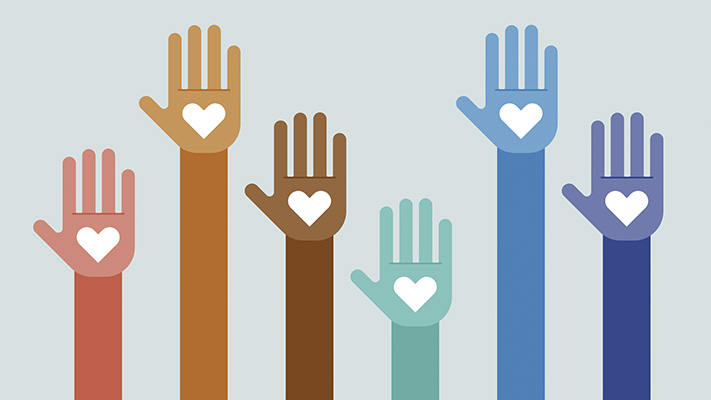Receiving appropriate care as a participant can sometimes be a challenge. Add in intersectionality and it takes things to another level. But what is intersectionality and how does it impact on disability care?
‘Intersectionality’ refers to personal characteristics that overlap to form a person’s identity. It can be pictured like an intersection between two roads, where traffic from both roads leads to an increase in congestion. Characteristics include things such as gender, sex, nationality, religion, aboriginality, and disability.
The overlapping of some characteristics can potentially magnify the discrimination and marginalisation that someone experiences. This is often the case for people with disabilities, particularly if they’re already impacted by social disadvantage.
Furthermore, this can have an impact on the care they receive.
The impact
These are just some examples of how intersectionality can impact the quality of care received by a participant.
Racial background
A lack of understanding about someone’s race and their cultural beliefs could reflect negatively in the care they receive. Underlying racism or prejudices may potentially mean that their care is not made a priority and their beliefs not taken into consideration.
Inability to communicate
If someone has a migrant background or doesn’t speak English as a first language, they may struggle to convey their wishes in terms of care. Without the necessary translation, they may be cared for in ways that don’t address their needs.
Aboriginal background
Someone from Aboriginal descent may have concerns around racial discrimination or the quality of care they will receive. There may be concerns about sensitivity to spiritual or cultural needs, potentially due to previous experiences. If they don’t understand available entitlements, they may not be reaching out and consequently slip under the healthcare radar.
Poor literacy skills
Someone with poor literacy skills may struggle to understand what services are available to them or be unable to access online resources or support groups. They may feel embarrassed that they’re unable to reach out so don’t get the help they deserve or accept a lesser standard.
Religious beliefs
A lack of understanding about someone’s religion can result in them being treated in a way that’s not in line with their healthcare beliefs. Without awareness and consideration of this they may feel forced into unsuitable care or shy away from receiving it as they feel unheard.
Regional location
Participants living in regional areas may struggle with care due to a lack of local resources or carers. To access suitable care, they may need to travel which is difficult and not always sustainable long term. They may slip under the radar.
Taking a holistic approach to care
Taking an intersectional approach to care can lead to impactful and holistic outcomes for the participant. So how can this be achieved?
Addressing the day-to-day barriers faced by participants is the first step.
Building an increased and deeper understanding of things such as race, religion, sexual orientation, and gender can help carers identify where care plans need to be adapted for certain participants.
A deeper understanding of an individual’s intersectionality and the ways in which they’re affected by prejudice or marginalisation will help a carer to address specific barriers.
A participant with literacy issues can be provided with the necessary tools and services needed to ensure they have access to care, an Aboriginal participant may feel more comfortable working with a career from an Aboriginal background.
Similarly, a different style of care plan or approach can be tailored for a participant based in a regional area or someone with certain belief systems.
Ongoing open communication and listening offers reassurance to participants that their needs and expectations are being met and any decision making is shared. Building this level of rapport will empower them to speak up with any concerns or worries about their care or any discrimination experienced.
The most important step is to establish an equal relationship with participants where there is no place for shame, stigma, stereotype, or discrimination. To ensure they get the care they need and deserve, a holistic approach is the way forward. The small steps we take now, lead to bigger change tomorrow.
Author – Unidex Healthcare



